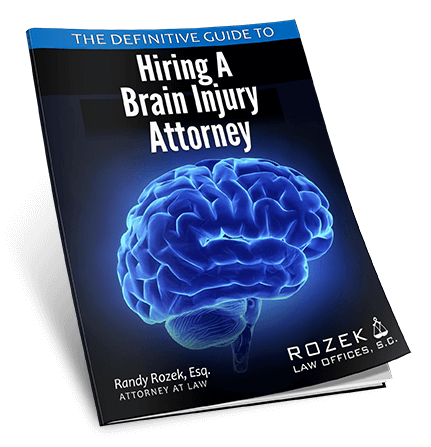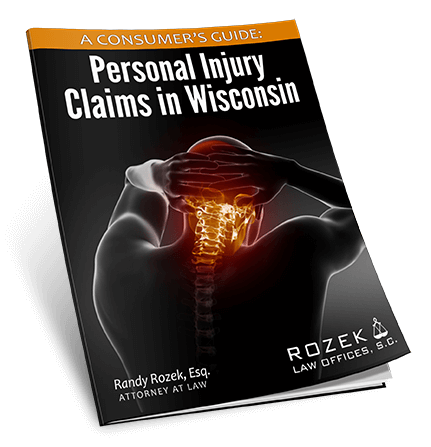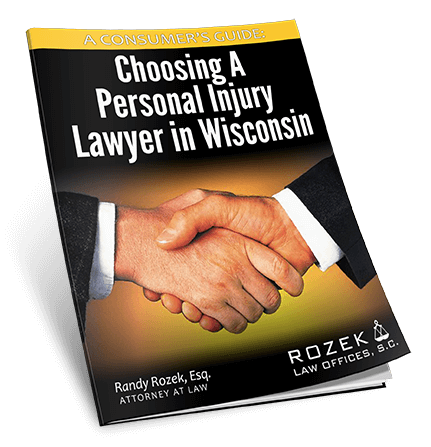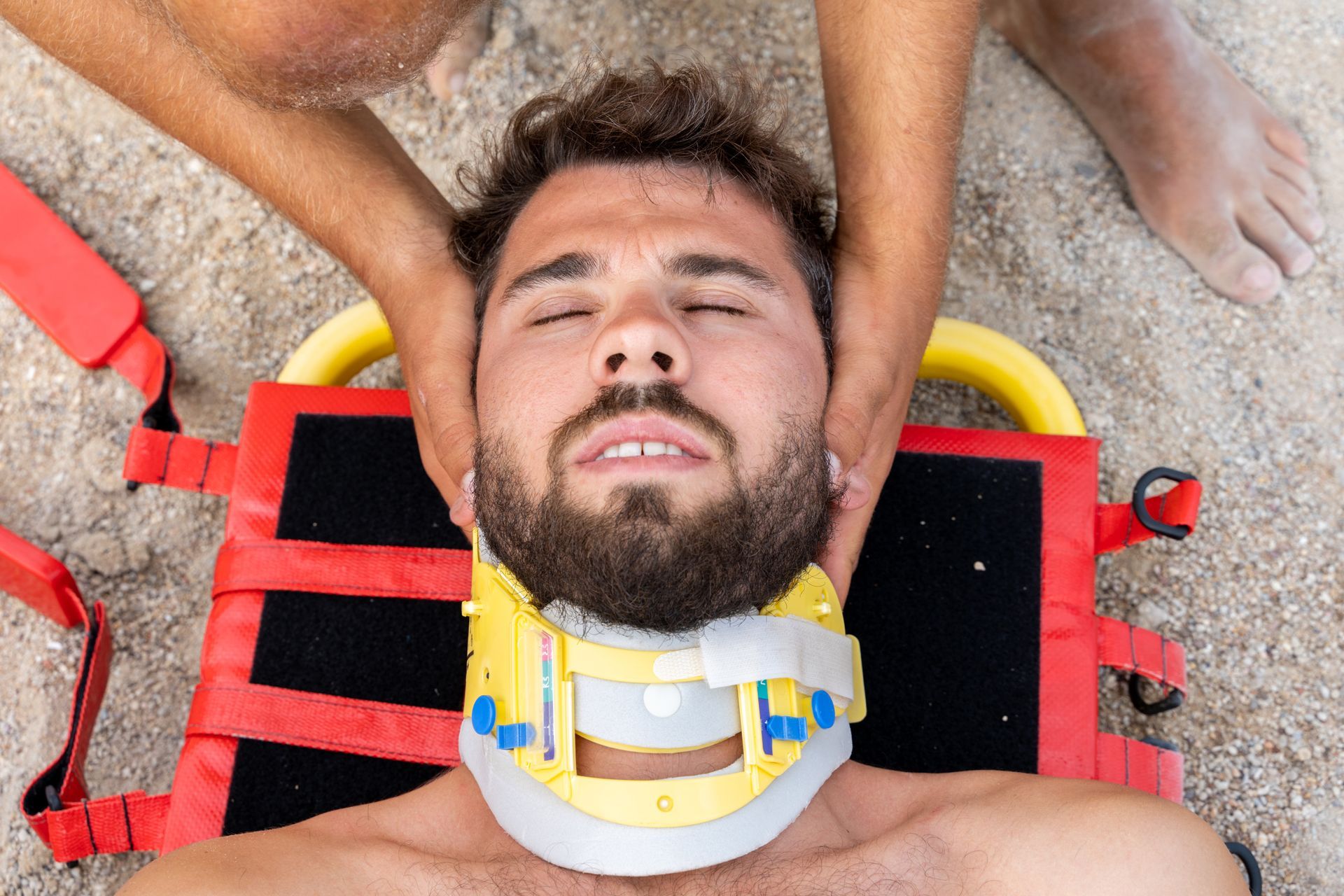Dog Bite Lawyer in Wisconsin

Wisconsin Dog Bite Attorney
There are an estimated 75 million dogs in the United States. The Centers for Disease Control has estimated that nearly 5 million people are bitten by dogs each year. Approximately, 1000 people visit hospital emergency rooms each day due to dog bites. Unfortunately, the majority of dog bite victims are children, half of which are bitten in the face.
Dog Bite Attorney
Dog bites account for the fifth most common reason for children visiting hospital emergency rooms.Children are more likely to be attacked by dogs because of their size. Most dog breeds are instinctually inhibited from attacking someone larger than the dog itself. There is a noticeable exception to this general rule. That is the Pit Bull. Pit Bulls are one breed that statistically attack adults as often as children. The following breeds have been reported as being involved in the most lethal attacks:
- Pit Bulls
- Rottweilers
- Presa Canarios and their mixes
- German Shepards
- Huskies
- Alaskan Malamutes
- Doberman Pinschers
- Chows
- Great Danes
- St. Bernards
- Akitas
Note: This doesn’t mean other breeds are by definition less dangerous. Many other breeds have much more propensity for biting, however, simply due to their size, they are not likely to be involved in a lethal attack. Many bites by smaller breeds are not even reported.When choosing a lawyer, it is critical that you hire an experienced Wisconsin Dog Bite Lawyer. You should be comfortable with your lawyer’s experience handling Wisconsin Dog Bite Personal Injury Cases. in which you have been involved. Contact an Experienced Wisconsin Dog Bite Lawyer.
Wisconsin Dog Bite Law
Wisconsin law has developed from one of general negligence, i.e. a dog bite victim used to have to show that the owner was somehow negligent in their control of the dog, to a more strict theory of liability for owners of dogs. Wisconsin dog owners are now automatically liable for harms or damages caused by their dogs.
A. Dog Injury Statute
Section 174.02 Wisconsin Statutes. Owner’s Liability for Damage Caused by Dog; Penalties
- Liability for injury.
(a) Without notice. Subject to s. 895.045 and except as provided in s. 895.57(4), the owner of a dog is liable for the full amount of damages caused by the dog injuring or causing injury to a person, domestic animal or property. (b) After notice. Subject to s. 895.045 and except as provided in s. 895.57(4), the owner of a dog is liable for 2 times the full amount of damages caused by the dog injuring or causing injury to a person, domestic animal or property if the owner was notified or knew that the dog previously injured or caused injury to a person, domestic animal or property.
- Penalties imposed on owner of dog causing damage.
(a) Without notice. The owner of a dog shall forfeit not less than $50 nor more than $500 if the dog injures or causes injury to a person, domestic animal, property, deer, game birds or the nests or eggs of game birds. (b) After notice. The owner of a dog shall forfeit not less than $200 nor more than $1,000 if the dog injures or causes injury to a person, domestic animal, property, deer, game birds or the nests or eggs of game birds, if the owner was notified or knew that the dog previously injured or caused injury to a person, domestic animal, property, deer, game birds or the nests or eggs of game birds. (c) Penalties in addition to liability for damages. The penalties in this subsection are in addition to any other liability imposed on the owner of a dog.
- Court order to kill a dog. (a) The state or any municipality may commence a civil action to obtain a judgment from a court ordering an officer to kill a dog. The court may grant the judgment if the court finds both of the following: 1. The dog caused serious injury to a person or domestic animal on 2 separate occasions off the owner’s property, without reasonable cause. 2. The owner of the dog was notified or knew prior to the 2nd injury, that the dog caused the first injury. (b) Any officer enforcing a judgment under this subsection shall kill a dog in a proper and humane manner.Notice that the statute uses the phrase “dog injury” as opposed to “dog bite.” This is an important distinction. Dogs oftentimes cause injury without actually biting. For example, a dog begins to chase a person and the person injures themselves while trying to escape the dog. As long as the dog causes the injury, then the owners are liable for the injuries.
B. Double Damages
Wisconsin law provides that the owner of a dog is liable for double the damages if the owner was aware that the dog had previously caused injury. These may not seem significant on its face, but it is quite progressive compared to other states dog injury laws. I cannot stress how important it is to hire an experienced Wisconsin dog bit lawyer. The immediate focus in every Wisconsin dog bite case is an investigation into the background of the dog and its owner. An experienced Wisconsin dog bit lawyer will know how to determine whether the dog has caused injury in the past and how to prove that the owner had knowledge of this prior injury. When choosing a lawyer, it is critical that you hire an experienced Wisconsin Dog Bite Lawyer. You should be comfortable with your lawyer’s experience handling Wisconsin Dog Bite Personal Injury Cases. in which you have been involved. Contact an Experienced Wisconsin Dog Bite Lawyer.
Wisconsin Dog Bite Law
Most experts agree that the majority of dog bites can be avoided, especially dog bites to children. According to the Centers for Disease Control, most dog bites are preventable. There are certain things that potential dog bite victims should not do in order to lessen the likelihood of being bit by a dog. Also, there certain things that owners should do, in order to prevent dog bites.
A. What Not to Do
- Do not approach an unfamiliar dog.
- Do not run from a dog and scream.
- Remain motionless (e.g., “be still like a tree”) when approached by an unfamiliar dog.
- If knocked over by a dog, roll into a ball and lie still (e.g., “be still like a log”).
- Do not play with a dog unless supervised by an adult.
- Immediately report stray dogs or dogs displaying unusual behavior to an adult.
- Avoid direct eye contact with a dog.
- Do not disturb a dog who is sleeping, eating, or caring for puppies.
- Do not pet a dog without allowing it to see and sniff you first.
- If bitten, immediately report the bite to an adult.
B. What Dog Owners Should Do
- Consult with a professional (e.g., veterinarian, animal behaviorist, or responsible breeder) to learn about suitable breeds of dogs for your household.
- Dogs with histories of aggression are inappropriate in households with children.
- Be sensitive to cues that a child is fearful or apprehensive about a dog and, if so, delay acquiring a dog.
- Spend time with a dog before buying or adopting it.
- Use caution when bringing a dog into the home of an infant or toddler.
- Spay/neuter virtually all dogs (this frequently reduces aggressive tendencies).
- Never leave infants or young children alone with any dog.
- Do not play aggressive games with your dog (e.g., wrestling).
- Properly socialize and train any dog entering the household.
- Teach the dog submissive behaviors (e.g., rolling over to expose abdomen and relinquishing food without growling).
- Immediately seek professional advice (e.g., from veterinarians, animal behaviorists, or responsible breeders) if the dog develops aggressive or undesirable behaviors.
For more information about prevention of dog bites and model polices for the control of dangerous dogs, see the American Veterinary Medical Association (AVMA) Task Force on Canine Aggression and Human-Canine Interactions: A community approach to dog bite prevention.










